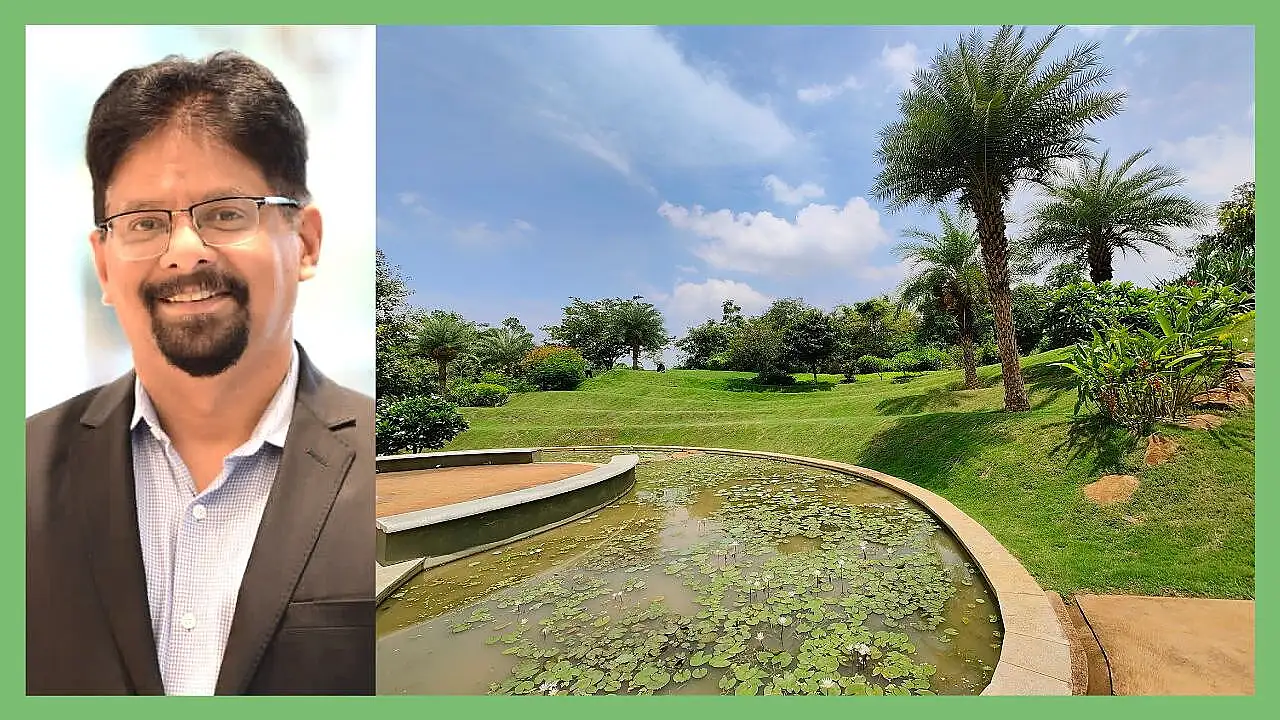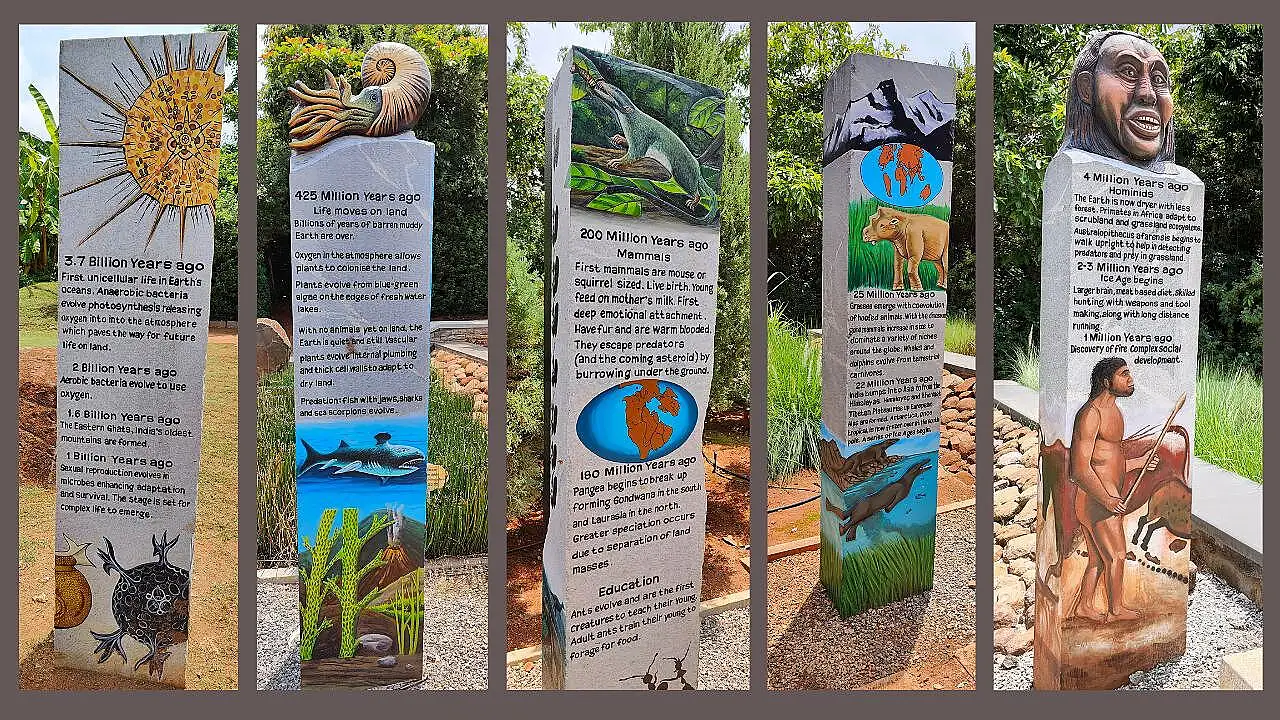
To foster ecological consciousness among children and various stakeholders, and to nurture young minds as future environmental change agents, Toyota Kirloskar Motor (TKM) established the ‘Ecozone’ about five years ago.
Padmanabha B, Executive Vice President of Manufacturing at TKM, believes that children can make a significant, positive impact by learning and practicing good eco-habits, thereby influencing their communities towards environmental conservation. TKM actively promotes visits to these Ecozone theme parks to instil a sense of responsibility towards the planet and teach practical ways to reduce environmental impacts from a very young age.
To date, this initiative has reached over 42,000 individuals, and the feedback has been highly encouraging. Celebrating five years of Ecozone, Padmanabha says, “We aim to enable eco-learning by covering 10,000 students every year going forward. We aspire to connect people from various walks of life, including our internal and external stakeholders, and work together to build a society in harmony with nature.'
Key Objectives
Over the years, Toyota has taken deliberate steps to transform from a carmaker into a sustainable mobility company. In line with its principle of ‘Respect for the Planet,’ the global company launched the ‘Toyota Environmental Challenge 2050’ (TEC 2050) in October 2015, comprising six environmental challenges. The first three challenges focus on achieving carbon neutrality across its products and entire value chain, including manufacturing activities. The remaining three challenges aim to create a net positive impact by minimising and optimising water usage, promoting a recycling-based society, and establishing a future society in ‘Harmony with Nature’.
Through the Ecozone initiative under Challenge 6 - ‘Establishing a Future Society in Harmony with Nature’, TKM aims to enrich learning and facilitate the sharing of best eco practices to promote responsible behaviours and actions for protecting the planet, he says.
Toyota Ecozone
Nestled within the expansive 25-acre premises the experiential environmental learning centre is a pivotal part of the TEC 2050. This ecozone brings to the fore the company’s firm dedication to a sustainable future, featuring 17 thoughtfully designed educational theme parks that inspire environmental responsibility while showcasing the company's advancements in green mobility.

Touring Ecozone
At the heart of the Ecozone is the Toyota Plaza, a native green building concept surrounded by natural landscapes. It highlights various green technologies, including fuel cell vehicles, hybrids, battery technology, and zero carbon dioxide charging solutions, emphasising Toyota's strides toward sustainable transportation.
The Value Theme Park demonstrates the OEM’s belief in creating value from waste. It underscores the importance of waste management in both urban and rural settings, showcasing different methods and also reiterating the principles of the 6Rs: refuse, reduce, reuse, recycle, refine, and regenerate. Through effective waste management practices, the company achieved 96% recycling-based operations, moving towards a zero-waste society.
Inspired by the Zen Garden at Kyoto's Ryoan-ji Temple, the Silent Garden offers a tranquil retreat designed to alleviate stress and promote mental well-being. This serene space encourages visitors to appreciate the calming power of silence, providing an ideal setting for meditation and reflection.
The Forest Theme Park represents India's diverse forests, while the Underground Ecology Park reveals the intricate world beneath our feet. It educates visitors about the crucial role of soil organisms in maintaining a healthy ecosystem. Exhibits demonstrate how creatures like the dung beetle and Indian pangolin enhance soil quality, emphasising the importance of preserving these underground habitats.
The Wetland Pavilion aims to raise awareness about water conservation and management. With alarming statistics on wastewater contamination, this pavilion educates visitors on solutions like rainwater harvesting, watershed management, and wetland ecosystems to optimise water usage and reduce waste.
The Pollination Meadow highlights the vital role of pollinators like bees and butterflies in ensuring food security. It serves as a haven for these crucial creatures, promoting the reproduction of plants and stressing the need to protect pollinators from harmful pesticides.
The Biodiversity Pavilion showcases species adaptations to changing environments, while the Energy Theme Park focuses on the transition to alternative energy sources. These parks educate visitors on the importance of biodiversity and sustainable energy practices.
The Orchards demonstrate how they meet nutritional needs for humans and animals, while the Medicinal Garden conserves over 100 medicinal plants, including 38 endangered species. It highlights India's rich heritage of medicinal plant use, with more than 7,000 known medicinal plant species.
The Education Building exemplifies sustainable architecture, incorporating natural lighting, rainwater harvesting, and wastewater treatment to minimise its ecological footprint. The Rainwater Harvesting Pond showcases advanced technologies like membrane bioreactors and reverse osmosis, achieving zero fresh water usage in manufacturing and promoting rainwater harvesting.
The Organic Farm illustrates the long-term benefits of organic farming over chemical fertilisers, while the Climate Change Theme Park addresses individual roles in mitigating climate change. This park, located at one of the highest points in the Ecozone, offers an eye-opening journey through the impacts of climate change.
The Solar Park promotes renewable energy use, with solar panels generating 8.2 MW of electricity within the premises of TKM and an additional 18 MW outsourced. Since June 2021, the vehicle maker has achieved 100% renewable energy in grid electricity.

The most interesting part of the Ecozone is the Evolution Theme Park as it offers a unique timeline walkthrough representing Earth's history and the evolution of life. Using a combination of stone, murals, and plants, it illustrates the last 600 million years, highlighting major extinctions and the arrival of humans, provoking thoughts on human impact on the planet.
The tour concludes at the Sacred Groves, diverse forests dedicated to local deities and protected by communities. This area highlights India's tradition of nature worship and promotes forest conservation through religious values.
The Toyota Ecozone stands as a testament to its dedication to environmental stewardship and innovation, offering a rich educational experience that fosters a deeper understanding of sustainability and the urgent need for ecological responsibility.
Key Benefits
While the Ecozone attracts a diverse range of stakeholders, including students, teachers, suppliers, dealers, government officials, media, industry associates, NGOs, and more, the school children, in particular, are assigned environmental projects based on their learnings at Ecozone. These projects aim to help students apply their eco knowledge through on-site implementation at their respective schools. TKM evaluates the success of each project by rating them and recognising the efforts of students, teachers, and their institutions with certifications and trophies, says Padmanabha.
In addition to fostering eco-consciousness, TKM actively engages its employees in afforestation drives, environmental month promotions, and other eco-friendly corporate social responsibility activities. According to him these initiatives aim to instil a sense of ownership and responsibility towards the environment.
Global Outreach
As Toyota strives to build a future society in harmony with nature, the company has introduced similar initiatives at its various locations worldwide. Examples of this commitment include the Toyota Biodiversity and Sustainability Learning Center 'Cheewa Panavet' at Toyota Motor Thailand Co., Ltd. Ban Pho Plant, the Biotope at the Tsutsumi Manufacturing Plant in Japan, and the Toyota Environment Education Center and Nature Trail at Toyota Kentucky.
Also Read:
How Toyota Kirloskar Motor's TTTI Transforms Rural Youth Into World-Class Technicians